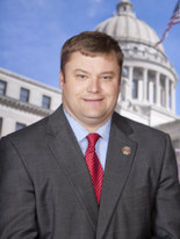
 JACKSON, Miss. (AP) — The claim that one Hinds County judge could ultimately decide the fate of Mississippi’s school finance system if voters amend the state constitution appears unlikely.
JACKSON, Miss. (AP) — The claim that one Hinds County judge could ultimately decide the fate of Mississippi’s school finance system if voters amend the state constitution appears unlikely.
If experience in other states is a guide, any ruling would be appealed.
“It’s the supreme court that’s going to decide it, not one judge,” said Michael Rebell. He’s executive director of the Campaign for Educational Equity and a lawyer who brought such a suit on behalf of the New York City students.
The possibility that one chancery judge could hold the fate of 490,000 Mississippi public school students in his or her hands has been a cornerstone of opponents’ attacks against Initiative 42 that will be on the Nov. 3 ballot.
The measure would require the state to provide “an adequate and efficient system of public schools,” and allow people to sue if funding falls short. Supporters say students are shortchanged because lawmakers don’t provide as much money as Mississippi’s school funding formula demands.
Republican leaders oppose the measure, saying it could give a judge control over a large portion of the state budget. They put an alternative on the ballot to require “effective” schools, without stipulating a right to sue.
It’s that recourse to court, and the threat that it presents to Mississippi’s tradition of legislative supremacy, that’s brought the heaviest attack by opponents.
House Speaker Pro Tem Greg Snowden, R-Meridian, said Oct. 19 at a forum sponsored by Mississippi State University’s Stennis Institute of Government and the Capitol press corps that the initiative would be a “radical change” that would be “contrary to our system of representative democracy.”
“The paramount duty of the Legislature is to appropriate the public dollar,” Snowden said. “Section 201 of the constitution would be changed, ultimately, to give that authority to the judiciary system. And that’s not appropriate.”
But that’s where the authority already lies in most states, according to Rebell, as well as a survey by the National Council of State Legislatures. He said it’s not unusual for lawmakers to resist limits to their authority.
“They’d rather have total power and not have anyone looking over their shoulder,” Rebell said. “That’s true of many legislatures. It’s why these issues arise.”
Snowden and other opponents warn of lengthy and expensive litigation if voters make the change.
“That phrase, ‘adequate and efficient,’ is a lawsuit hand grenade,” he said.
Jim Keith of Ridgeland, a prominent school board attorney who supports the initiative, said the wording will only pull the state into court if funding doesn’t improve.
“The matter will never get to court if the Legislature does its job,” Keith said, arguing that the Legislature needs to find a way to make up the $200 million gap between current funding levels and what the formula demands.
So will someone sue eventually? Probably.
NCSL found that more than 160 lawsuits challenging school finance systems have been filed in 46 states. Rebell’s group counts 24 states where those seeking changes have won, mixed rulings in two, and 17 states where judges didn’t order changes. In many states, cases have gone back to courts repeatedly.
Delaware, Hawaii, Nevada and Utah are the only states where NCSL and Rebell’s group have never recorded a suit. Even Mississippi has had a suit, with former Gov. Ronnie Musgrove’s effort to force repayments of amounts that some school districts have been shorted under the current funding formula.
It might be worth noting that, so far, Musgrove has gained little traction with the one Hinds County judge hearing his suit. That, of course, could change if there were a constitutional guarantee to fall back on.



